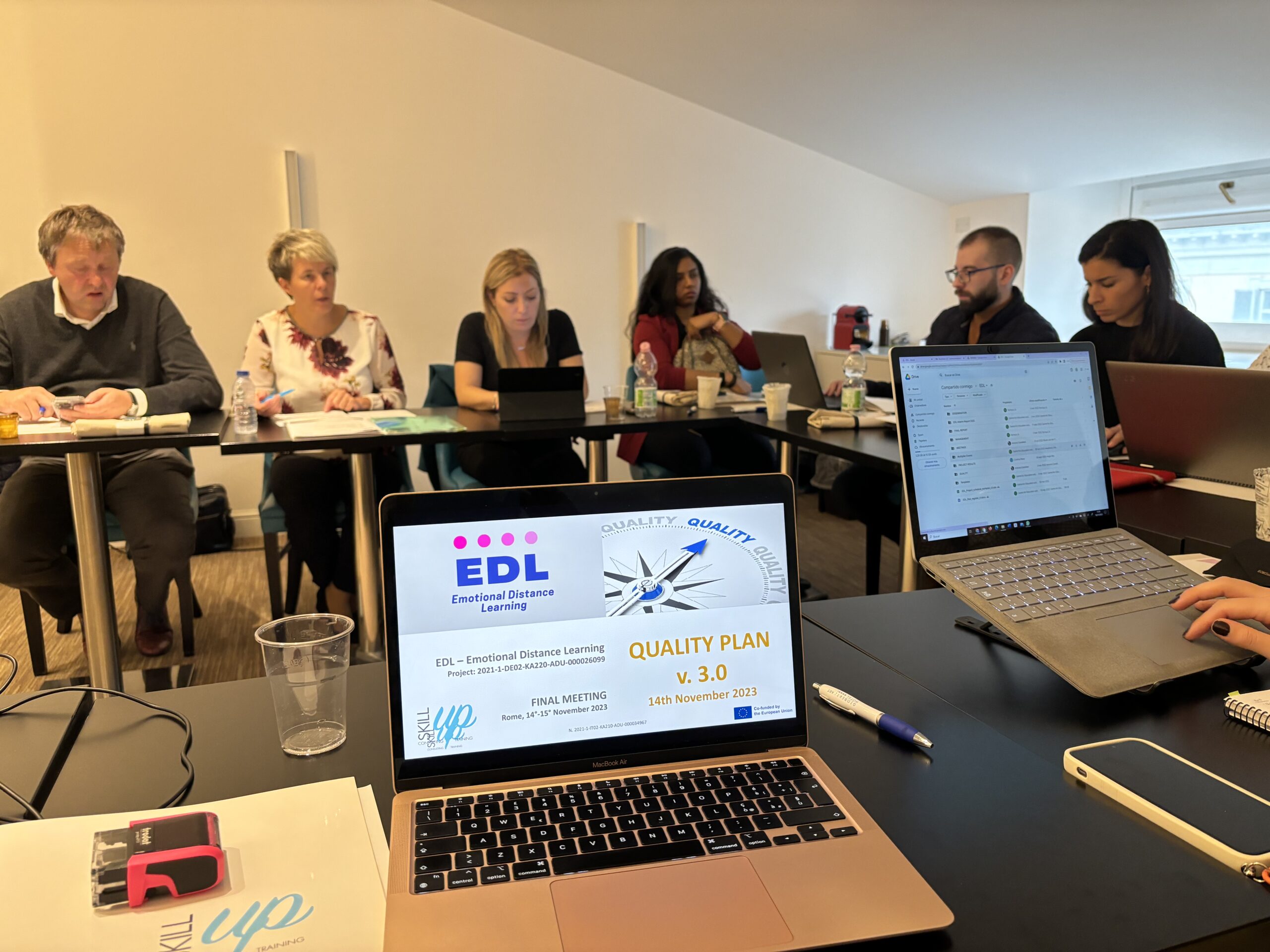By Emma Barker, Eurospeak
In today’s digital era, the world has witnessed a remarkable transformation in the way people connect, communicate and collaborate. Online group activities have emerged as a powerful tool, providing individuals with a myriad of benefits that extend beyond geographical boundaries. Whether it’s for educational, professional or recreational purposes, engaging in online group activities has become increasingly popular.
Modules 19 and 20 of the training system for adult teachers and trainers in EDL deal with Group Activities from the intrapersonal (Module 19) and the interpersonal (Module 20) perspective. In this article, we will explore the advantages of group activities and present a practical example to highlight their potential.
Enhanced Social Interaction:
Online group activities foster social interaction, enabling individuals to connect with like-minded people from around the world. Through chat forums, discussion boards or video conferences, participants can exchange ideas, share experiences and build meaningful relationships. This interaction not only promotes cultural diversity but also broadens perspectives and encourages collaboration.
Flexible Learning Opportunities:
One of the greatest advantages of online group activities is the flexibility they offer. Participants can engage in activities at their own convenience, eliminating the constraints of time and location. This allows learners to access educational resources, join discussions and complete assignments without being restricted by traditional classroom settings. The freedom to learn and contribute at one’s own pace promotes self-directed learning and empowers individuals to take control of their education.
Increased Engagement and Motivation:
Online group activities often involve interactive elements, such as gamification, quizzes or collaborative projects. These features enhance engagement and motivate participants to actively participate. With the use of multimedia, visual aids and real-time feedback, learners are more likely to retain information and develop a deeper understanding of the subject matter. The shared experience of working towards a common goal also boosts motivation and encourages individuals to push their boundaries.
Diverse Perspectives and Knowledge Sharing:
Online group activities bring together individuals from different backgrounds, cultures and experiences. This diversity enriches the learning environment by exposing participants to a wide range of perspectives and ideas. Through discussions and collaborative projects, learners can tap into collective knowledge, gaining insights that they might not have encountered otherwise. The ability to share and learn from others’ experiences enhances critical thinking, creativity and problem-solving skills.
Practical Example: Virtual Language Exchange:
To illustrate the benefits of online group activities, let’s consider the example of a virtual language exchange programme. This initiative connects language learners from different countries to practice and improve their language skills through conversation. Participants engage in online group sessions, pairing up with native speakers of the language they are learning. Through structured discussions and activities, they exchange cultural insights, correct each other’s language usage and enhance their speaking and listening skills.
The virtual language exchange programme provides an excellent opportunity for learners to practice their language skills in an authentic context. It allows them to form connections with people from different cultures while gaining valuable insights into the target language. The interactive nature of the programme ensures active participation and promotes continuous learning. That is what we aim for in the EDL project!



0 Comments